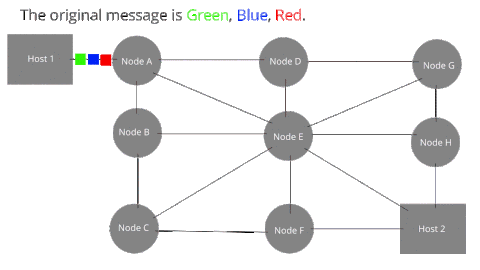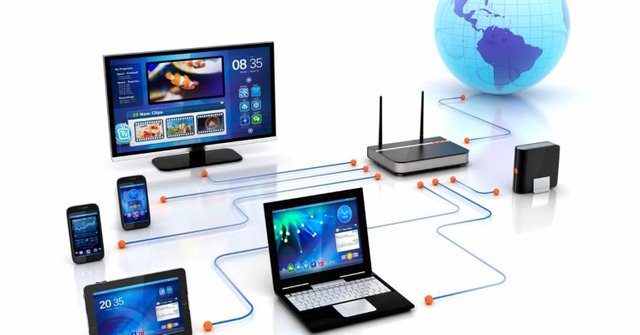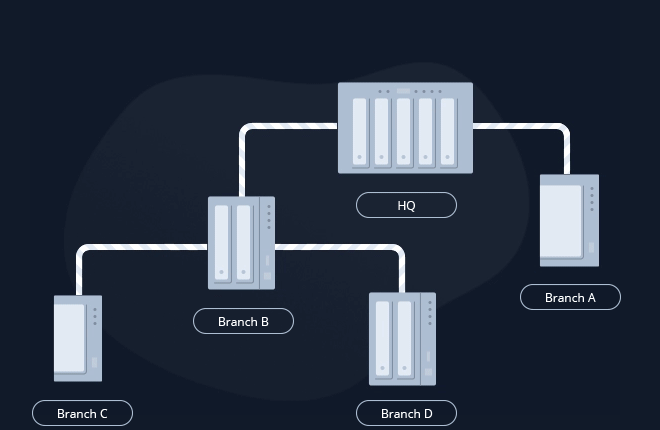Data transfer in DPN and VPN networks. What are the differences?
Introduction
Since its inception, the purpose of the Internet has been to provide the human being with a multidisciplinary tool for the exchange of information. During the last years it has had an accelerated growth reaching a considerable fraction of the world's population with applications in all areas of daily life. The Internet redefines the concept of global communication by developing effective means that accelerate the transfer of data, offering new forms of interaction through social networks and decentralized platforms.
Current problem of the Web
Storage capacity and data processing are affected by increasing demographics and the use of applications which cause some network saturation. Some services have capacity and interoperability problems, which usually occur when a platform does not have sufficient technology to support the demand for large-scale services.
Technology solutions
Ongoing IT updating as well as platform investment manages to attack this symptom in a corrective and predictive way. The encryption of information, the creation of nodes, digital data transmission protocols, contribute to the connections guaranteeing the data flow. Hence, Blockchain becomes a highly recommended technological model for data storage and transfer thanks to its potential, security protocols and consensus which facilitate Internet operations according to the needs of the common user.

What is data transfer?
It is the capacity of a hosting to transfer (receive and send) a certain volume of data during a given time interval. The data is generated by the interactions occurring on the site. As a web site evolves it will require more data transfer and more space for processing and storing information.
The average user resorts to the Internet to process personal or business information, make negotiations, procedures or research at the same time aspiring to obtain a fast, efficient and secure service. It is very common the case where a company resorts to the service of private computer centers in charge of processing big data at high costs, which in turn, do not allow the user to be directly involved in the process. It is simply a negotiation with intermediaries where sensitive information is exposed obeying the interests of large corporations that dominate the market.

Blockchain data transfer
For its part, the Blockchain complies with a decentralized process determined by nodes working in a distributed network. The transfer of information is validated and encrypted by a consensus algorithm, then the negotiation structure is packaged and incorporated into the network where it is stored incorruptibly.
The nodes are automatically synchronized in such a way that they can replace each other in the event of a system crash, making the blockchain a continuous space for information transfer and storage.
"The graphic explains how a transaction made by the interested parties is digitized and transferred to the network and then verified and packaged with a unique hash, after being validated by consensus it is added to the ledger and stored in each of the nodes distributed throughout the network."

Bandwidth
Web resource consumption and availability.
Some of the most common problems that service providers must solve due to the disproportionate growth of digital platforms and usage demand is bandwidth. Multimedia applications and the use of smart devices demand large amounts of data that sometimes exceed the capacity of the network. But, we ask ourselves: What is bandwidth? Why is it so essential?
The availability or consumption of Internet resources for the transmission of information measured in binary digits per second (bits/s), is what we call bandwidth. Undoubtedly, this translates into speed and efficiency of data flow.
 image source
image source"The graph shows how data is transferred through the network using the processing power of the connected equipment to ensure that the information arrives from a host 1 to a host 2 in a continuous and distributed manner according to the sender's instructions. In a similar case, the bandwidth influences the delivery speed and the content packetization capacity."

The use of fiber optics for Internet is one of the most widely used technologies as well as wireless routers. Other cases consider the technological migration to more advanced devices that allow the decongestion of the telephone network and gateways using the bandwidth and available space of CPUs and GPUs of intelligent equipment, central processing and backup or any computerized tool that use IoT to operate and in turn stay connected to the network without having to resort to an ISP provider.
Decentralized node network (DPN).
In Blockchain it becomes possible to create dynamic networks of nodes that free up bandwidth to avoid congestion by contributing storage and data transmission resources at low cost. A decentralized public infrastructure that allows secure and reliable communication without the need to resort to private Internet services (ISP) which monopolize access to the network.
VPN Network
VPN Internet exchanges consist of a group of computers capable of transmitting data reliably and with high capacity. However, they use the public network to operate by providing private extranet services. In this case the user is not involved in the negotiations and the confidentiality of the data is somewhat lost since the VPN acts as an intermediary.

Differences between a decentralized network and a VPN
Decentralized Network (DPN)
- No servers, they are a network of randomly distributed nodes.
- User devices act as hosts and provide their own resources (WAN)
- High security and privacy of sensitive data in distributed networks
- P2P communication without dependence on a central computer center
- Autonomy and control over data
- Preserves anonymity
- No cost
- No maintenance required
Virtual Private Network (VPN)
- Are a privately managed central infrastructure
- Network can be slowed down according to demand and requires investment in maintenance
- Susceptible to attacks and/or data infiltration as it requires logging for authentication
- The service provider manages the information and the user is not involved.
- Access is controlled or restricted
- Requires user identification
- High subscription costs
Final thoughts
The Internet user is betting on an efficient, fast and secure service where they can have control of operations while maintaining the highest degree of confidentiality. Today VPNs continue to provide domestic and corporate solutions with a considerable improvement in their products and software, however the common customer is increasingly looking at the democratization of the Web paying special attention to the free services offered by DPNs.
The Blockchain maintains the optimal, verifiable, error-free, uninterrupted data flow and uninterrupted transmission where smart contracts are transparently and securely finalized with 24/7 access from anywhere in the world. Effectively reducing connection and bandwidth problems that are very common on the Internet. Avoiding the virtual threat or impersonation thanks to the distributed consensus protocol, this makes it possible to take advantage of the maximum potential of the network while the information is recorded in the ledger where it will remain incorruptible.
In this sense, the adoption of the DPN node system opens the doors to a new modality of use for data transfers and obtaining conclusive results in negotiations, while preserving the necessary autonomy and operational performance, determining factors for a rewarding experience while working on the Web.

Original content
2021
It's nice to meet you, here is my new presentation on Steemit.com: IntroduceYourself




Well explained post with a lot of valuable information embbeeded in it. Thanks for sharing
Hi @mandate! How are you friend? Thanks for your visit and comment
Greetings @nachomolina2, from my point of view the VPN networks are still the most used for its time in this technological world, but however the DPN networks offer greater decentralization and security in data transfer, in a not too distant time the DPN networks will surpass the VPN networks.
I fully agree with you, I think a migration of the service from VPN to DPN needs to be accomplished and that will take some time. Taking into account the business, institutional, domestic and independent part. Greetings,
Thank you for your comment @carlir
Hi there, this is very good and valuable information. You know i have never researched partuclarly about DPN but your post is knowledgable for me. keep sharing
Thanks for apreciate!